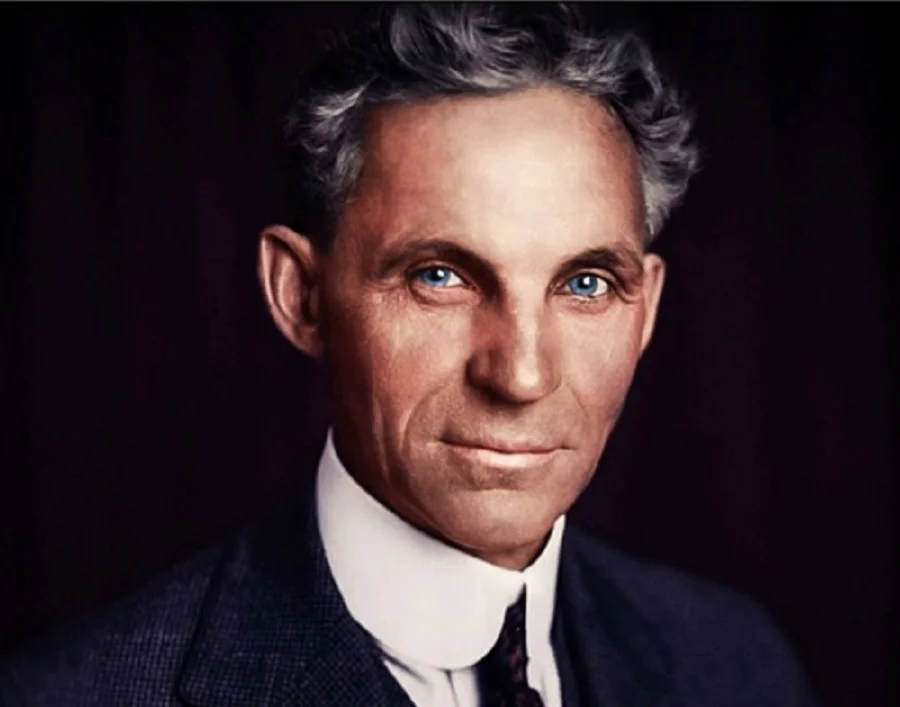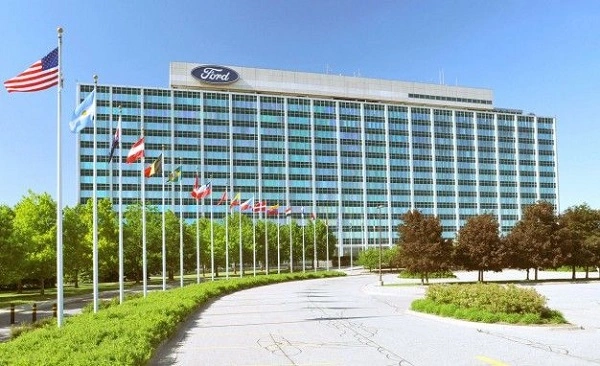
Henry Ford: The Visionary Who Revolutionized the Automotive Industry and Transformed Modern Manufacturing
Henry Ford, a name synonymous with innovation and industrialization, was a pioneering entrepreneur who left an indelible mark on the world. Born on July 30, 1863, in Greenfield Township, Michigan, Ford grew up on a farm and developed a profound fascination with machinery from a young age. He went on to become one of the most influential figures of the 20th century, revolutionizing the automotive industry and introducing groundbreaking manufacturing techniques that transformed modern production.
Early Life and Mechanical Curiosity
Henry Ford's early life was marked by curiosity and an innate mechanical aptitude. As a child, he spent countless hours tinkering with machines and understanding their inner workings. His experiences on the family farm and his natural ingenuity laid the foundation for his future accomplishments in engineering and entrepreneurship.


The Founding of Ford Motor Company.
In 1896, at the age of 33, Henry Ford built his first self-propelled vehicle, the Quadricycle, a rudimentary gasoline-powered car with four bicycle wheels. This venture sparked Ford's passion for automobiles and set him on a path to create more sophisticated and accessible vehicles. In 1903, Henry Ford, along with several investors, founded the Ford Motor Company. His vision was to develop affordable, mass-produced automobiles for ordinary Americans. Initially, the company faced challenges, but Ford's determination and innovation propelled it to success.
The Model T: A Car for Everyman.
Ford's most significant achievement came in 1908 with the introduction of the Model T, often referred to as the - in Lizzie. The Model T was a landmark vehicle, featuring a sturdy design, a reliable engine, and a simple-to-drive system. Its affordability and practicality made it an instant hit, capturing the imagination of the American public.


Embracing the Assembly Line.
Ford's true genius lay in his introduction of assembly line production techniques. In 1913, he implemented the world's first moving assembly line at the Ford Motor Company's Highland Park, Michigan plant. This groundbreaking innovation allowed Ford to manufacture vehicles more efficiently and at a lower cost. The implementation of the assembly line not only drastically reduced the time it took to build a car but also increased productivity, allowing Ford to produce cars in large quantities. The efficiency gains led to significant cost savings, which Ford passed on to customers, making the Model T even more affordable.
Mass Production and Impact on Society.
With the efficient production techniques in place, Ford took the unprecedented step of reducing the price of the Model T year after year. By 1924, the price of a new Model T had dropped to just $290, making it accessible to millions of American families. The Model T's affordability and widespread adoption revolutionized American society. It transformed transportation, granting people greater mobility, and connecting rural areas to cities. The rise of the automobile also changed the face of American cities, leading to the development of suburbs and altering the urban landscape.


Ford's Impact on the Workforce.
As the success of the Model T grew, Ford became known for his progressive labor practices. In 1914, he famously introduced a $5-per-day minimum wage for his employees, which was more than double the average wage at the time. This move not only attracted skilled workers but also reduced employee turnover, resulting in a more stable and loyal workforce. Ford also implemented the eight-hour workday and the five-day workweek, which became standard in many industries. His enlightened approach to labor demonstrated that providing fair wages and reasonable work hours could lead to a more content and productive workforce.
Challenges and Controversies.
While Henry Ford's contributions to the automotive industry were groundbreaking, he faced challenges and controversies throughout his career. His reluctance to innovate and update the Model T led to a decline in Ford's market share as competitors introduced more modern and stylish vehicles. Moreover, Ford's personal views and actions sometimes sparked controversies. His staunch anti-union stance and publication of anti-Semitic material in the Dearborn Independent newspaper tarnished his public image.


Later Years and Legacy.
Henry Ford retired from the day-to-day management of Ford Motor Company in 1919 but remained active in the company's operations and continued to influence its policies. He passed away on April 7, 1947, leaving behind a vast legacy. Henry Ford's innovative spirit and pioneering approaches to manufacturing forever changed the world. His introduction of mass production techniques not only revolutionized the automotive industry but also had a profound impact on modern manufacturing processes across various sectors. The Ford Motor Company remains a prominent global automaker, and the Model T's legacy endures as one of the most influential cars in automotive history. Additionally, Ford's progressive labor practices left a lasting impact on how businesses treat their employees, setting a precedent for fair wages and better working conditions.
Conclusion.
Henry Ford's life and achievements illustrate the power of ingenuity and determination in shaping the course of history. His vision for affordable automobiles and innovative manufacturing methods transformed the automotive industry and revolutionized the way products were made. The Model T, the assembly line, and Ford's progressive labor practices left a profound impact on American society and the global industrial landscape. While Ford faced challenges and controversies, his contributions to society, manufacturing, and transportation are undeniably monumental. His legacy as a visionary entrepreneur and engineering genius continues to inspire generations of innovators, ensuring that the name - Henry Ford - remains forever etched in the annals of history.

eXus Dev 28.7.2023







































